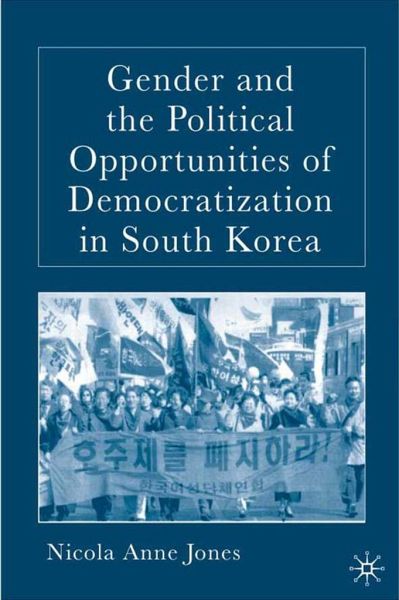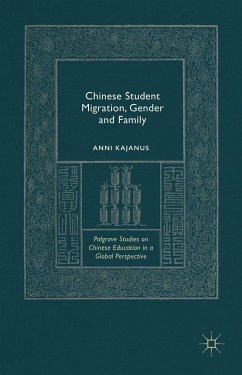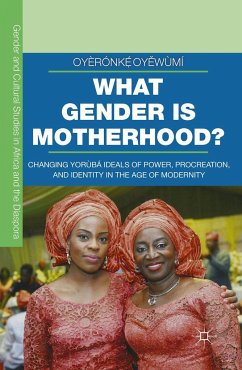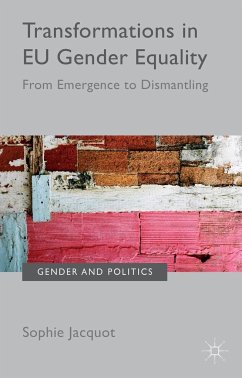
Gender and the Political Opportunities of Democratization in South Korea

PAYBACK Punkte
20 °P sammeln!
This book explores how political opportunities afforded by democratization, including the relative balance of power between conservative and progressive civic actors, shape power relations between men and women in post-authoritarian Korea. Jones reveals that organized women can make a difference - depending on their strategic choices and alliances, and the manner in which they negotiate evolving political institutions. Moreover, democratic consolidation need not be led by political parties, but can provide surprising opportunities for an organized civil society to press for a deepening of poli...
This book explores how political opportunities afforded by democratization, including the relative balance of power between conservative and progressive civic actors, shape power relations between men and women in post-authoritarian Korea. Jones reveals that organized women can make a difference - depending on their strategic choices and alliances, and the manner in which they negotiate evolving political institutions. Moreover, democratic consolidation need not be led by political parties, but can provide surprising opportunities for an organized civil society to press for a deepening of political and human rights.














